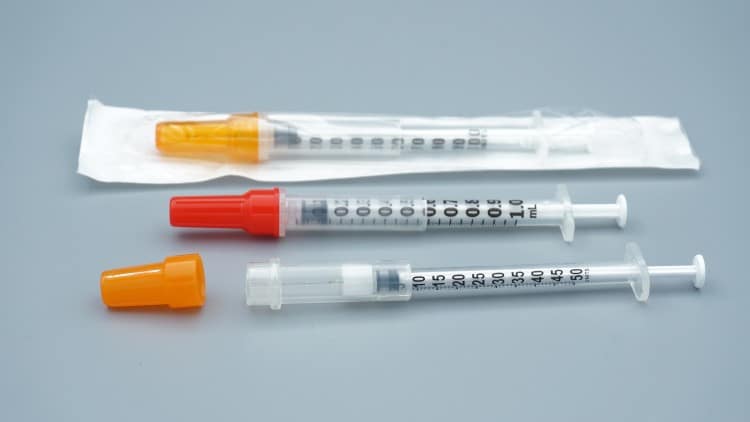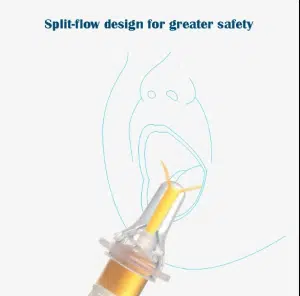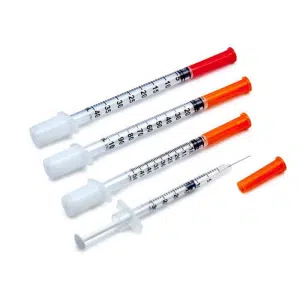Living with diabetes in the United States is incredibly common, affecting millions of people who rely on insulin to manage their blood sugar levels. For those who need insulin injections, choosing a safe, user-friendly, and accurate injection device is absolutely crucial. Today, let’s dive deep into one of the most popular tools available — disposable insulin syringes.
What Exactly Are Disposable Insulin Syringes?
Disposable insulin syringes are specialized medical devices designed specifically for insulin administration. They consist of three main components: the barrel, plunger, and needle. These syringes feature incredibly precise markings measured in “units (IU),” with common sizes including 30-unit, 50-unit, and 100-unit capacities.
The key feature of these syringes is their “single-use” design. After use, they must be properly disposed of and never reused, which significantly reduces the risk of infection and cross-contamination.

Why Do So Many People Choose Them?
Simply put, they’re affordable, easy to use, and highly safe. Most insurance plans cover them, making them particularly suitable for diabetes patients who need long-term self-injection therapy.
Key Advantages of Disposable Insulin Syringes
Precision Dosing
Insulin dosing requires extreme accuracy — even small variations can significantly impact blood sugar control. Disposable syringes offer detailed markings that help you inject each unit with precision.
Simple Operation
With basic training, most people can quickly learn proper usage techniques, perfect for daily self-administration at home.
Safety First
The single-use design eliminates cross-contamination risks. The ultra-fine needle design also minimizes pain during injection.
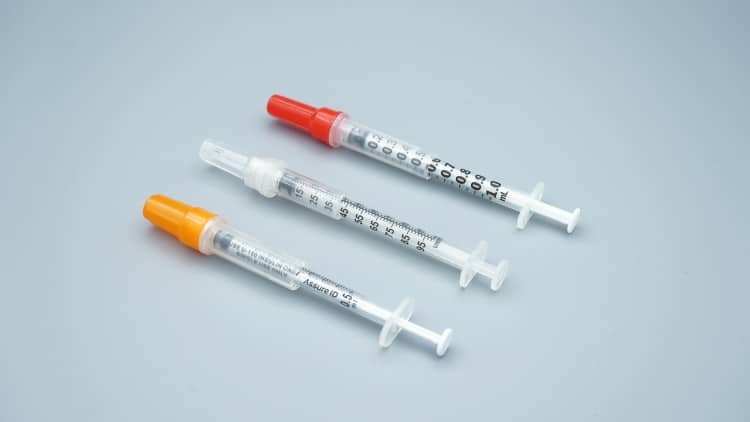
How to Properly Use Disposable Syringes
While the process isn’t complicated, every step is critical:
- Wash Your Hands → Ensure cleanliness to prevent infection.
- Prepare Your Insulin Vial and Syringe → Check that the medication is clear and hasn’t expired.
- Drawing the Medication:
—First, inject air equal to your dose into the insulin vial
—Turn the vial upside down and slowly draw the required amount
—Gently tap to remove any air bubbles
Choose the Right Injection Site: Common locations include the abdomen, outer thigh, or back of the upper arm. Rotate injection sites to prevent lipodystrophy (hardened tissue) from frequent injections in the same area.
Injection Technique:
—Clean the skin with an alcohol swab
—Insert the needle at a 45 to 90-degree angle
—Slowly push the plunger to inject insulin
—Wait a few seconds after injection before removing the needle
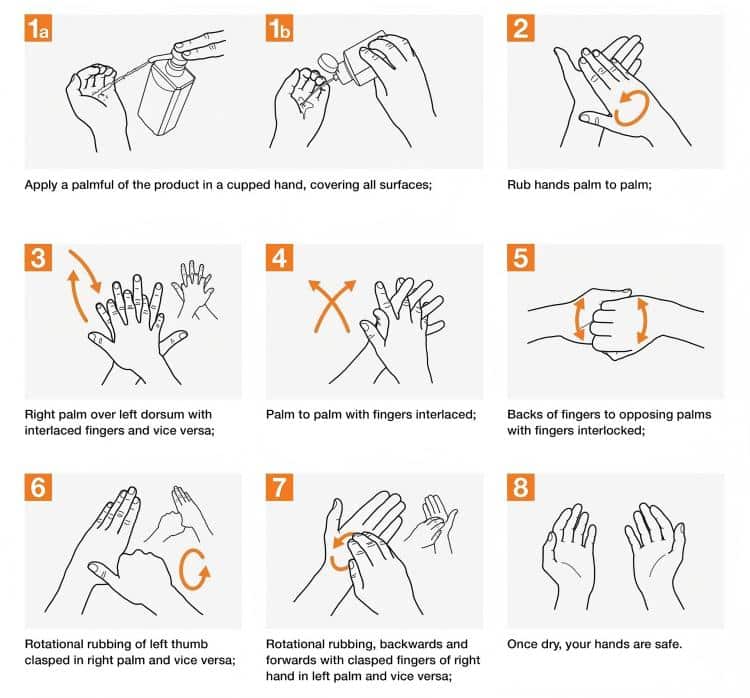
How to Store Syringes and Insulin Properly
—Syringes: Store in a dry, cool place away from direct sunlight and high temperatures. Use immediately after opening the package and never reuse!
—Used Syringe Disposal: Never throw them directly in the trash. Use a sealed plastic container (like an old laundry detergent bottle), then dispose of it at your local medical waste collection site.
—Insulin Storage:
- Unopened: Keep refrigerated (but don’t freeze)
2. Opened: Can be stored at room temperature, typically good for about 28 days — check the package insert for specifics
Critical Mistakes to Avoid
Never reuse syringes, even if you think “it’s just for me.” The needle becomes dull, can damage skin, and increases infection risk.
Don’t adjust dosages on your own! Always follow your doctor’s prescription — never guess or change amounts based on how you feel.
Replace immediately if you notice a bent needle or damaged packaging.
Experiencing redness or pain after injection? Mild, temporary discomfort is normal, but if you notice persistent inflammation or worsening symptoms, contact your healthcare provider immediately.

Disposable Syringes vs. Insulin Pens/Pumps: Which Should You Choose?
Many diabetes patients in the United States also use insulin pens or insulin pumps. While these methods offer more convenience and modern appeal, they also come with higher costs.
Disposable syringes offer:
- Affordable pricing
- Easy availability (sold at most pharmacies and medical supply stores)
- Perfect for patients who need to mix different types of insulin
For example, some patients need to combine short-acting and long-acting insulin — syringes provide much more flexibility for this type of mixing.
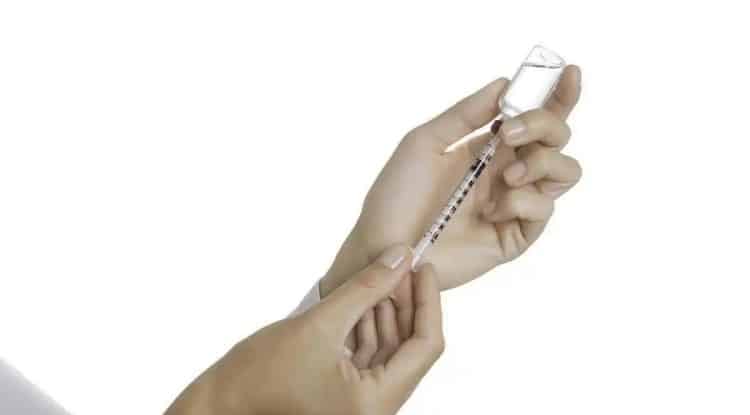
Final Thoughts
Managing diabetes is a lifelong journey, and while disposable insulin syringes might seem like a small tool, they play an absolutely crucial role in the entire treatment process.
If you or a family member is using insulin, we strongly recommend discussing proper syringe technique with your doctor or pharmacist. Learn the correct usage methods — every step matters. Choose the right tools and use proper techniques to truly maintain stable blood sugar control.
With careful management, people with diabetes can absolutely live healthy, high-quality lives. Don’t fear the injections — what you should fear is ignoring your body’s signals.
Remember: consistency in your diabetes management routine, including proper injection technique, is key to long-term success. Stay informed, stay safe, and take control of your health one injection at a time.

